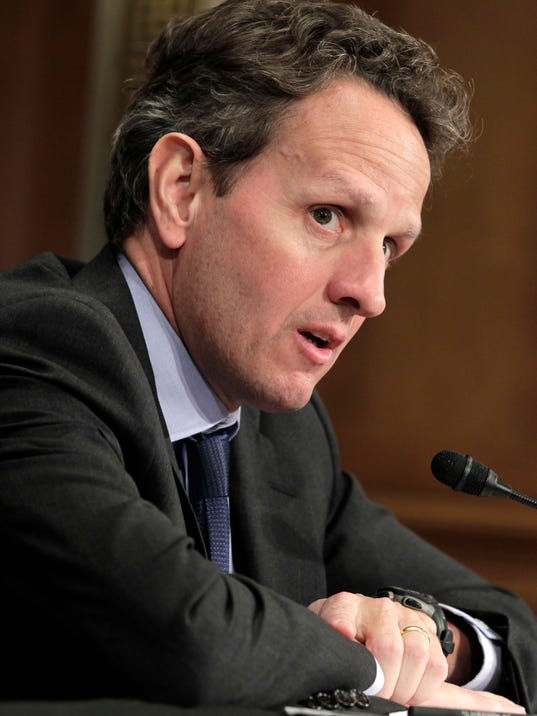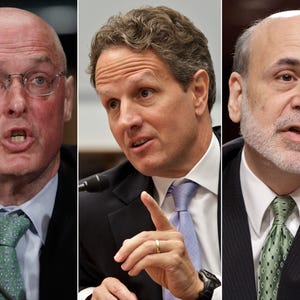WASHINGTON -- Former Treasury Secretary Tim Geithner testified Wednesday that he knew of no government efforts to intensively assess whether AIG took excessive risks or mismanaged the company before the government took control of the insurance giant in 2008.
But he said the company's near financial collapse was enough to convince officials that executives had made bad decisions.
Geithner, who headed the Federal Reserve Bank of New York when the government took controlling ownership of the company in exchange for an $85 billion loan, is a key witness in a lawsuit brought by former AIG CEO Maurice Greenberg.
Greenberg, who stepped down in 2005 after 40 years at the company's helm, argues the government illegally took a controlling interest in AIG without providing shareholders "just compensation."
Starr International, Greenberg's investment firm and AIG's largest investor in 2008, is seeking $40 billion to compensate him and other shareholders for the high interest rate the government charged and other financial losses.
Starr's famed attorney, David Boies, asked Geithner if he or other government officials investigated whether AIG executives made bad management decisions or took imprudent risks before taking an 80% equity stake in the firm.
AIG sold insurance for tens of billions of dollars in derivatives related to mortgages that it couldn't cover when the real estate market crashed.
Initially, Geithner said they had made such assessments, but based only on the "scale of AIG's financial needs." "Because they were coming to us" in dire circumstances, he said. "On that basis we had reasonable basis for judging that they had taken imprudent risks."
Geithner added that AIG was in worse shape than other financial institutions that approached the Fed and government for bailouts during the 2008 financial crisis: "We were making judgments about what AIG's needs were relative to other financial institutions."
Boies repeatedly pressed Geithner on whether the government studied whether AIG's decisions were unreasonable, other than by concluding that must have been the case based on the results. "Were any efforts made to determine whether the risks were imprudent at the time they were made?" Boies asked.
"No, we did not," Geithner responded.
"Did you make any general attempts?" Boies asked.
"No, and I don't know how you could have done that, because of that thing about hindsight and stuff," he added, drawing a burst of courtroom laughter.
Asked if it's possible AIG did not act recklessly at the time of its decisions even though they ultimately put the company on the verge of bankruptcy, Geithner said, "Interesting question. I guess I would say yes."
The government argues that its bailout, which eventually totaled $182 billion, rescued AIG from bankruptcy and prevented the U.S. economy from spiraling into a depression.
AIG ultimately repaid $205 billion to the government, including a profit of $22.7 billion. AIG itself has not joined Greenberg's lawsuit.
The case is being argued before Judge Thomas Wheeler of the U.S. Court of Claims in Washington.
Former Treasury Secretary Henry Paulson already has testified this week, saying the onerous terms of AIG's bailout were designed to punish the company to prevent other firms from taking similar risks. Former Federal Reserve Chairman Ben Bernanke is expected to testify Thursday.



No comments:
Post a Comment